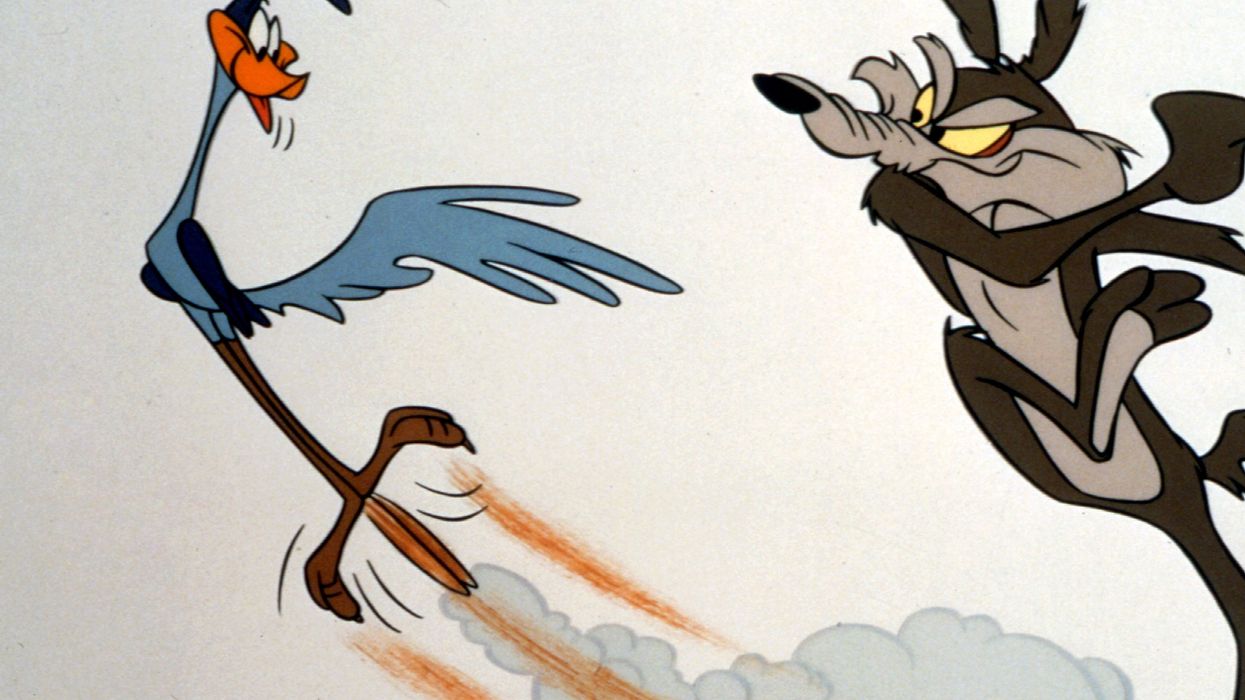Corbin is professor emeritus of marketing at the University of Northern Iowa.
According to the April 12-16 NBC News survey, 52 percent of voters have somewhat or very negative feelings toward President Joe Biden, while 53 percent of voters have the same notion about former President Donald Trump. To make matters worse, Americans’ interest in the Nov. 5 election is the lowest since 2008.
Maybe it’s time to spark up interest in the election by bringing some comedy to the situation. First — with assistance from Greg Daugherty of Money — let’s review some cartoon characters who, via their creators, have actually announced a presidential candidacy. Then we’ll examine a few fictitious cartoon rivalries. One or more of the following may remind you of Biden or Trump. If a cartoon-related Biden-Trump 2024 rivalry doesn’t seem to develop, then the following is a jog through memory lane, good for any soul to do from time to time.
The Greatest Generation (1901-1927), the silent generation (1928-1945), baby boomers (1946-1964), Generation X (1965-1980) and millennials (1981-1996) may recall the cartoon duo Mutt and Jeff. Despite their strikingly different heights, they broke the cartoon-character-as-presidential-candidate glass ceiling as running mates in 1908. Their every-four-year-run for presidency ended in the 1980s. Many Americans would concur that the phrase “Biden and Trump are as different as Mutt and Jeff” is apropos.
Pogo, created by cartoonist Walt Kelly, first ran for office in 1952. The 1952 “Pogo for President” campaign rally at Harvard University turned into a riot. Pogo’s quadrennial candidacy ended in the 1970s and is known for the saying “We have met the enemy and he is us.” A presidential rally turning into a riot rings a bell, doesn’t it?
Another fabricated candidate who sought office against Dwight Eisenhower and Adlai Stevenson in 1956 was Alfred E. Neumann, Mad Magazine’s mascot. Among Neumann’s campaign slogans was the infamous “You could do worse, you always have!” Many voters would claim that applies to recent elections.
In 1960, Alvin the singing chipmunk ran for president during the John F. Kennedy-Richard Nixon competition. Kennedy welcomed Alvin to the race by remarking, “I’m glad to know that I have at least one worthy opponent.”
Snoopy, the beagle of the “Peanuts” comic strip, ran for president in 1968, 1972, 1976 and 1980. In 1980, Ronald Reagan wrote to cartoonist Charles Schulz stating, “anything you can do to talk Snoopy out of running will be appreciated. How would he feel about a cabinet post?”
According to WatchMojo, there are quite a few cartoon rivalries that have entertained us for years. See if one or more of the following cartoon characters resemble Mr. Biden or Mr. Trump.
Democratic and GOP presidential candidates try to attract voters in their own unique manner, just like Popeye and Bluto (aka, Brutus) have fought — for 92 years — over Olive Oyl. Biden and Trump also seek the appeal of women voters, but in a strikingly different manner of grace, poise and decency.
Since the 1940s the rivalry of Tom and Jerry has been intense; they can’t agree on anything (just like Biden and Trump). Jerry is an overconfident good guy while Tom is about winning at all costs. Sound familiar?
For decades, Elmer Fudd has been purposefully chasing after that “wascawwy wabbit” Bugs Bunny. But thanks to his disguises and the various tricks up his sleeve, the rabbit always survives. This begs the question: Which of this year’s presidential candidates is most proficient — like Bugs Bunny — at disinformation, misinformation and propaganda?
In the “SpongeBob SquarePants” TV series (1999-present), Mr. Krabs and Plankton have continuously been fighting over the Krabby Patty recipe. Plankton keeps trying to steal back the recipe while Krabs is focused on revenge, retribution and greed as he really, really loves money. Any presidential candidate come to mind?
My favorite cartoon rivalry is Road Runner vs. Wile E. Coyote (1930-1969). The devious coyote uses complex contraptions from the Acme Corporation to catch his prey, with each conspiracy backfiring. Put into a forced-choice comparative decision, Biden is Road Runner, constantly on the run with continual attempts at bipartisan legislation and international peace making. Meanwhile, Trump is Wile E. Coyote. Trump’s 343 merchandise opportunities (e.g., $40 MAGA hat, $59.99 Bible, $200 sneakers, etc.) are available at the Trump Store and not Acme Corporation.
If nothing else, this rundown may have given you time to reminisce, relax from the struggles of daily life, laugh and ponder the similarities between comedy and presidential candidate similarities before realizing that on Nov. 5 voting will be no laughing matter.




















